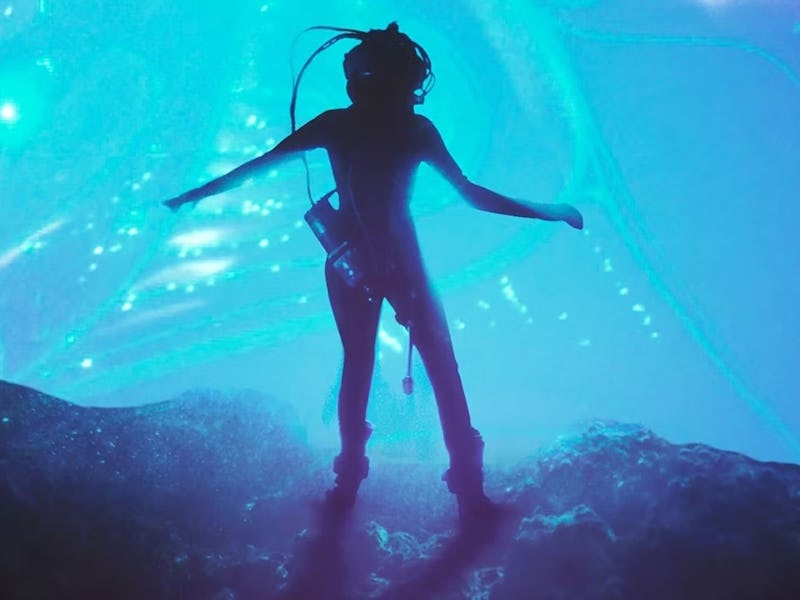Exclusive Video Reveals the Extreme Dedication Behind an Iconic James Cameron Sci-Fi Movie
Sometimes you just need to look at things from a new perspective.

The Abyss is a touchstone for James Cameron’s career. Combining his love of sci-fi with his love of diving, the 1989 underwater alien horror pushed the limits of filmmaking... which was no easy task. The massive production required huge tanks, specially made watercraft, and lots and lots of safety precautions.
Cameron and his underwater filming crew would dive down 50 feet to get adequate shots, and at that depth, there’s a risk of decompression sickness. In an exclusive clip of one of the bonus features from The Abyss’ new 4K’s release, Cameron explains his unique approach to decompression — and how he wasted no time as a director.
Cameron speaks about filming underwater in a 4K bonus feature.
Decompression sickness — colloquially known as “the bends” — occurs when a human body decreases pressure too quickly, causing air bubbles to build in the bloodstream and tissues. To avoid this, divers like Cameron and his crew had to hang out in shallow water and breathe pure oxygen from hoses snaked into their helmets.
But for Cameron, this was valuable time. So while he was hanging upside down from a rope to keep his heart at the recommended three-foot level, he would watch his dailies on an upside-down color monitor. That’s not how most directors would spend their time regrouping after a day of shooting, but James Cameron is not most directors.
The Abyss is full of underwater shots that needed deep dives to film.
The Abyss is a beautifully shot film, and looks even more spectacular in its new 4K restoration, but it took the effort of a lot of people to plunge to literal life-threatening depths. Cameron didn’t exactly give up the habit, given that he returned to underwater voyages with Titanic and attempted another water-based adventure with Avatar: The Way of Water. But The Abyss started Cameron’s obsession, and safety came first, even when the safe thing to do was hang upside and suck pure oxygen.
“It was pretty crazy, it was pretty full on,” Cameron says in the clip. And when James Cameron, king of the complex film shoot, calls a production “crazy,” you know it’s not being said lightly.